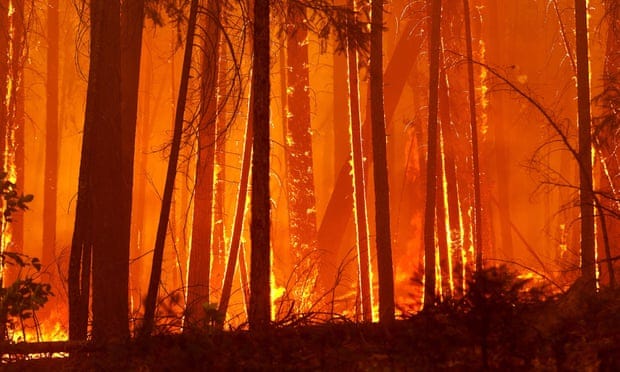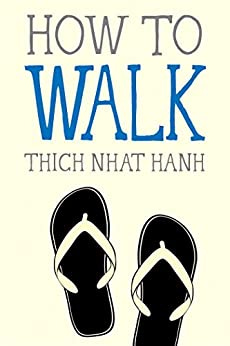Welcome to the latest Regen/ Notes
Springtime
Had we the connectivity with nature and seasons that our ancestors had, we would today be celebrating Imbolc, the midpoint between the winter solstice and the spring equinox.
Spring is the time when snowdrops give cheer at the end of winter with the promise of longer, warmer days, yet do we stop and give thought as to what is happening below ground in preparation for spring.
For more on Noticing Nature do check out the brilliant tweets and threads from the team at Noticing Nature: the British micro-season project.


This was a noticing nature aspect explored on a Regen/Walk with 3rd year Interior Design students at Derby University recently, how noticing and learning from nature can inform our designs, from the activity in the soil below ground, waiting to burst into life, to the micro-world of mosses, and the texture of Middle Oak that 300 years ago sheltered Bonnie Prince Charlie.
Robin Wall Kimmerer writes and talks of the importance of (indigenous) language, in particular Potawatomi that has a word - puhpowee - for the sound a mushroom makes as it pushes up from the ground over night. Braiding Sweetgrass: Indigenous Wisdom, Scientific Knowledge, and the Teachings of Plants
Walking has featured in readings this week - with the passing of a Thich Nhat Hanh, Vietnamese Zen Master whose writing on Mindful Walking shaped mindful thinking and practice for many,
and this wonderful New Yorker article/profile of Kim Stanley Robinson, Can science fiction wake us up to our Climate reality? Author of Ministry for the Future and other climate-based books, Stanely Robinson takes those wishing to interview him on ultralight overnight walks into the Sierra Nevada.
Now, there’s a thought for the upcoming interviews I have planned!

Carbon
In a forthcoming regenerative playbook publication we ask the question “how are your carbon reduction and offset approaches regenerative?”
George Monbiot in his Guardian column Carbon offsetting is not warding off environmental collapse – it’s accelerating it sees offsetting as potentially dangerous degenerative and colonialism instruments. But then not all offsets are equal, some are more equal than others, and determining the right route to offset as your last resort is a nuanced and careful decision to make.

Do we have carbon tunnel vision with our recent focus on the must-be-on-the-bandwagon approach to net-zero? Carbon reduction to the point where we are back in balance with the earth is vital and urgent, but part of a connected regenerative approach.
It is encouraging to see the Considerate Constructor Scheme reinforce carbon reduction (of embodied, construction phase and scope 3 through the supply chain) and biodiversity within its scope and scoring. “clearer requirements to identify environmental concerns and address these, a new expectation to set and record carbon emissions targets, and a new expectation to maintain/or improve the natural environment”
And is worth noting that our construction phase carbon monitoring and reduction tool, ConstructCO2 has been identified by the Considerate Constructors Scheme as best practice since 2014.
Zoom Regenerative
We are excited with our news (and timely to announce at Imbolc - its a very good time to share plans for the future) that Zoom Regenerative has grown into Regen/ ... to advocate, nurture and support regenerative futures, through programmes such as Regen /walks, /notes /work, /words /zoom and much more. And that Anna Williamson, having started 2022 as a regenerative sustainability ‘consultant’ is now very much on board with everything at Regen/…
Be sure to come along to Zoom Regenerative #42 and hear more.
ZR 42
Our next Zoom Regenerative is on the 15th February at 8 pm UK explores the world of regenerative real estate. Details and registration here.
What if investors, developers and clients made ‘regenerative’ choices at the feasibility stage in the real estate sector?
We are delighted to welcome Frances Pimentel Nevares (Regenerative Practitioner, Global Real Estate Advisor ONESIR One Sothebys International Realty and Business Development with REGENBE) to share her insight and experiences.
Regen/
Anna Williamson, (Regenerative Sustainability Consultant at Limewood Group) shares thoughts from our last ideas meeting:

Though the 1st February is Imbolc, the Ancient celebration for Spring returning, it is also Saint Brigid’s Day and as my spiritual guide and mentor Pamela Young tells me - a good day to write down your dreams for future manifestations and to Green The Land with Brigid’s Cape.
Inscribe those dreams while thinking of or being near a Beech tree, for it is the Guardian of Writers, the bark being used by the Druids to write on.
At our latest ‘ideas meeting’, Martin and I reflected on the previous zR session: “On the move: Logistics, Transport and the Built environment” which had been delivered by guest Nooshin Akrami - friend and regular contributor to the Zoom Regens. In her role as ‘sustainability trainer’ for the Wincanton Group, and herself being an architectural technologist, she shared her insights with the group which triggered a vibrant debate.
If we want more stuff, we need to move and transport more stuff. Scope 3 emissions (those associated with transport and a supply chain) and who owns them and can therefore control them, highlighted the myriad ways goods could be transported to keep emissions levels - and carbon - down. Are the hub-and-spoke models of the online retailers more efficient as they can group local deliveries, sometimes in electric vehicles? Or if each consumer had an electric vehicle, would it do less harm to the environment to travel to collect the ordered goods?
Yet, if wanting more and more stuff is in itself not sustainable, is there a sustainable option to moving that stuff?
It was an interesting point. It is nuanced, and not solvable overnight.
Up next was the editing of the forthcoming production of ‘The Regenerative Playbook’. As influencers in the world of sustainability begin to speak of ‘regenerative’, we believe the time is right to tackle the matter head-on. People working in the field of sustainability - managers, senior managers and exec teams need to know what regenerative is, and why they need it. Watch this space!
Building on the Regen Pollinator series of 2021 which couldn’t be held in person, the first 2022 Regen/ Retreat is in the full planning stage. We understand the need to meet in person to discuss the principles of regenerative sustainability, to co-create and collaborate so that we can impact our sectors to ensure we’re on a route to not just doing less bad to the planet, but that our actions can be generative. The first retreat will be held in the northwest of England, on a Friday to Sunday in April - and how can the theme not be Earth Day?
Updates and prices will be sent out soon, but you can register your interest by messaging us direct.
Regen/:
Regenerative principles are woven through each sector, level of business and our personal lives. Look out for the Regen/ series of updates throughout 2022 from Regen/ Talks to Regen/ Walks, Writes, Works, Notes and Playbooks.
And after all that discussions, we acknowledged that working within prevailing norms, we recognise that to move sustainability action forward, to become generative, we need to reach beyond our boundaries. Vocabulary helps and we ask you to ponder: what does ‘regenerative’ mean to you?. How might you already be practising it?
And if you need a new word to ponder for this week, try ‘salutogenesis’. And let’s all consider the health of the planet locally, close to where we live and work and play.
Regen/ Notes
Regen/ Notes is a newsletter of regenerative news, stories and more, with a sideways focus on the built environment, curated by Martin Brown. It is a companion to our Regen/ Zoom activities and podcasts where we join spaces between regenerative dots, share the themes and work that invigorates, inspires and feeds our curiosity.







